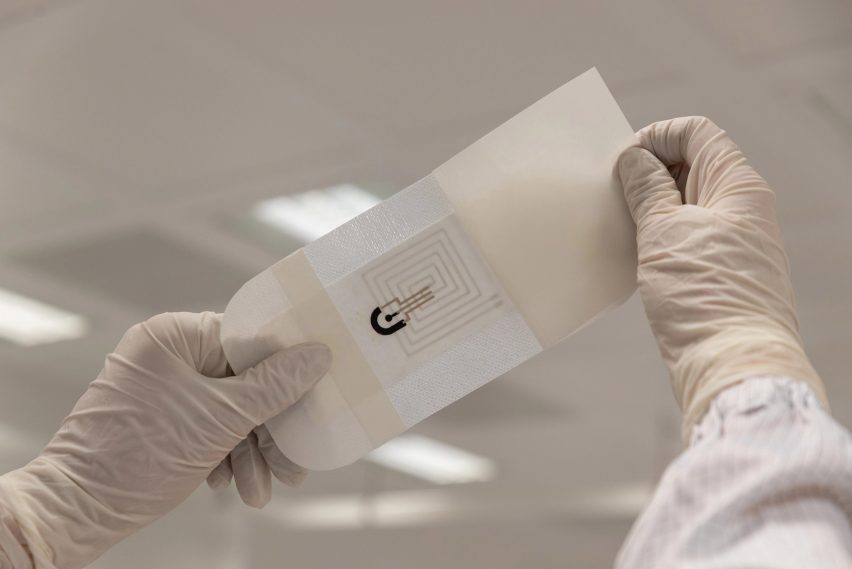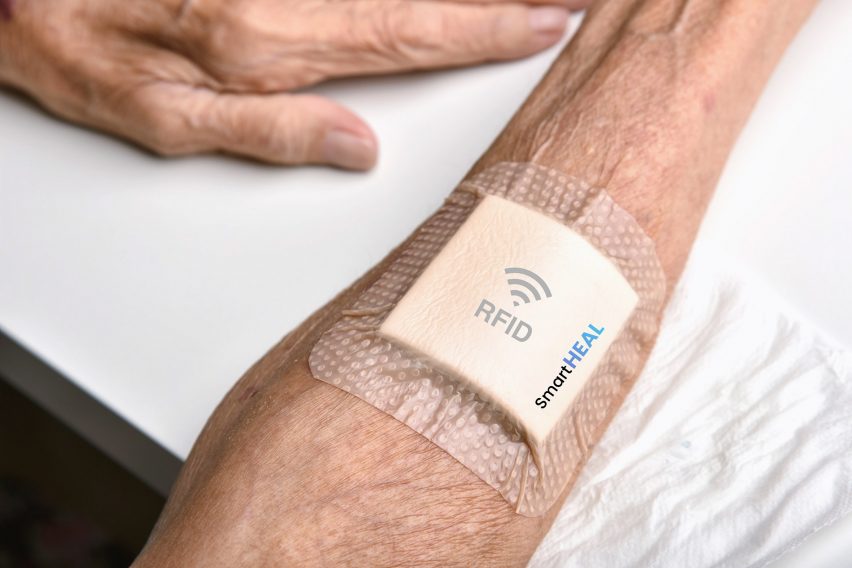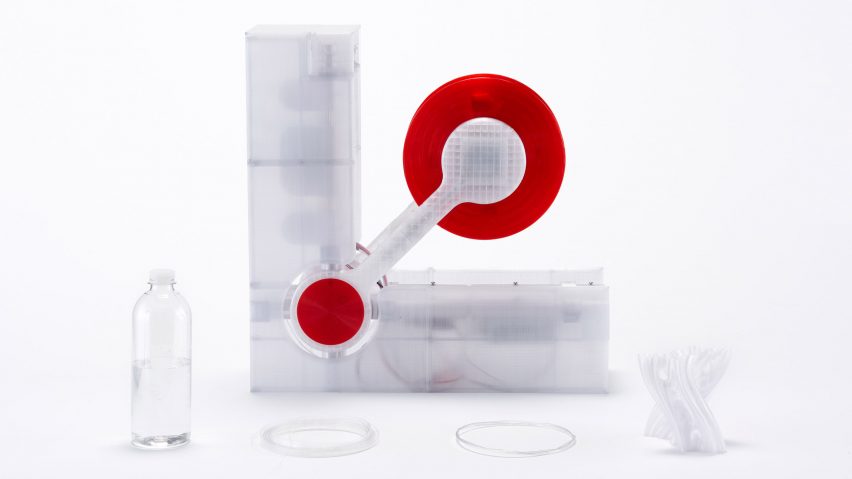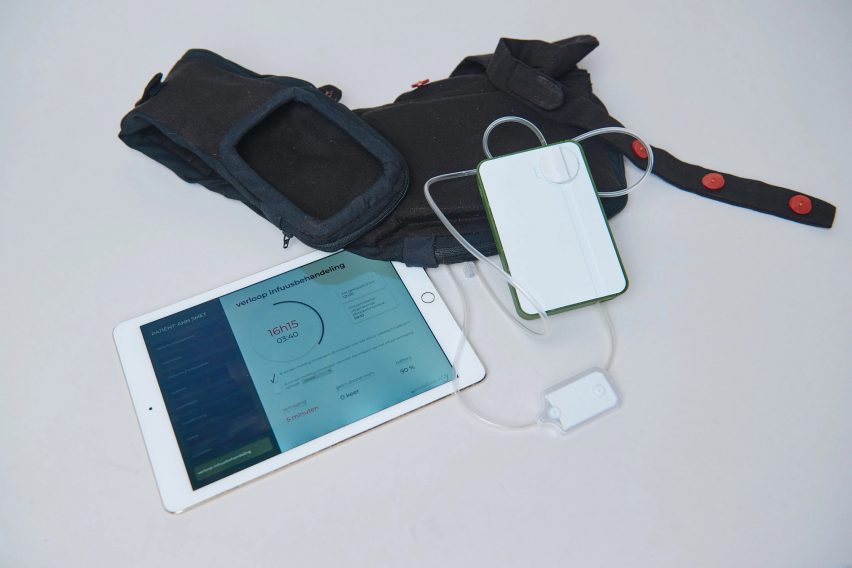Infection-sensing wound dressing wins top prize in 2022 James Dyson Awards
A trio of PhD students from the Warsaw University of Technology have been named the grand prize winners of this year's James Dyson Awards for their SmartHEAL sensor, which is integrated into a dressing to detect how well a wound is healing.
The smart sensor, designed by Tomasz Raczyński, Dominik Baraniecki and Piotr Walter, measures the pH balance of a wound to detect possible infections without needing to change the dressing – as this can disrupt the tissue and actually cause infection.

This is especially important for older people who have a higher risk of developing chronic wounds, which can lead to complications and death in a quarter of outpatients over 70.
"We offer instant results, a non-invasive product that leads to faster and more comfortable healing processes and can reduce the wound healing time and prevent amputations and death for thousands of patients," the inventors explained.
"Our manufacturing technology allows for very high volume and scalable production, making our product affordable for everyone."

SmartHEAL works using an electronic pH sensor that is printed onto a textile backing and doesn't require batteries or a power supply to function.
Instead, the sensor communicates information about the state of the wound using radio frequency identification (RFID). This wireless communication system makes use of radio waves to transfer data about the pH value of the wound, which users can read by simply passing a mobile device over the sensor.
"Key to our solution is our novel technology of manufacturing the dressing with an integrated sensor, which involves scalable and easy-to-implement screen printing technology combined with thermal transfer," the designers explained.
"It can be washed, it can be stretched and it won't break."

As the winners of the James Dyson Awards grand prize, the trio will receive £30,000 in prize money. This will be put towards finishing SmartHEAL's testing phase and starting clinical trials, with the aim of getting the product to market by 2025.
"I hope the award will give the team impetus to proceed down the tricky path towards commercialisation," said British inventor James Dyson, who founded the award and selects its grand prize winners every year.
Another £30,000 was awarded to Polyformer – an open-source recycling machine that turns plastic bottles into 3D-printing filament – which was named this year's global sustainability winner.
The machine was designed by Swaleh Owais and Reiten Cheng to help makers in the Global South turn plastic waste into a local, affordable and abundant design material.
"We are using the prize money to deploy several Polyformers and Polyformer-Lites at our partner maker spaces in Rwanda," the duo explained.
"With these machines, local students, designers and makers in Rwanda will have access to low-cost 3D-printer filament."

The international runner-up prize for this year's awards went to Ivvy by Charlotte Blancke – a wearable alternative to intravenous drip poles.
Every year, the James Dyson Award rewards the best in student design and engineering across the world, with the grand prize and sustainability winner selected from a list of 29 national winners.
Previous winners have included an at-home test kit for breast cancer and a solar panel made from food waste that can harvest power not just from visible sunlight but also from invisible UV rays.